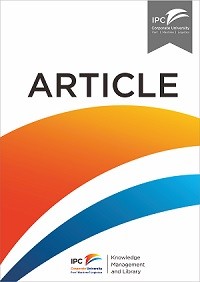a Comparison of traditional and neural networks forecasting techniques for container throughput at Bangkok Port
Containerization is one of the important factors for Thailand’s economics. However, forecasts of container throughput growth and development of Bangkok Port, the significant port of Thailand, have been scant and the findings are divergence. Moreover, the existing literature emphasizes only two forecasting methods, namely time series and regression analysis. The aim of this paper is to explore Multilayer Perceptron (MLP) and Linear Regression for predicting future container throughput at Bangkok Port. Factors affecting cargo throughput at Bangkok Port were identified and then collected from Bank of Thailand, Office of the National Economic and Social Development Board, World Bank, Ministry of Interior, and Energy Policy and Planning Office. These factors were entered into MLP and Linear Regression forecasting models that generated a projection of cargo throughput. Subsequently, the results were measured by root mean squared error (RMSE) and mean absolute error (MAE). Based on the results, this research provides the best application of forecasting technique which is Neural Network – Multilayer Perceptron technique for predicting container throughput at Bangkok Port.
Ketersediaan
Informasi Detail
- Judul Seri
-
-
- No. Panggil
-
ATC PO GOS c
- Penerbit
- Thailand : The Asian Journal of Shipping and Logistics., 2011
- Deskripsi Fisik
-
20 pages
- Bahasa
-
Indonesia
- ISBN/ISSN
-
-
- Klasifikasi
-
PO
- Tipe Isi
-
-
- Tipe Media
-
-
- Tipe Pembawa
-
online resource
- Edisi
-
Volume 27 Number 3 December 2011 pp. 463-482
- Subjek
- Info Detail Spesifik
-
-
- Pernyataan Tanggungjawab
-
Veerachai GOSASANG
Versi lain/terkait
Lampiran Berkas
Komentar
Anda harus masuk sebelum memberikan komentar

 Karya Umum
Karya Umum  Filsafat
Filsafat  Agama
Agama  Ilmu-ilmu Sosial
Ilmu-ilmu Sosial  Bahasa
Bahasa  Ilmu-ilmu Murni
Ilmu-ilmu Murni  Ilmu-ilmu Terapan
Ilmu-ilmu Terapan  Kesenian, Hiburan, dan Olahraga
Kesenian, Hiburan, dan Olahraga  Kesusastraan
Kesusastraan  Geografi dan Sejarah
Geografi dan Sejarah